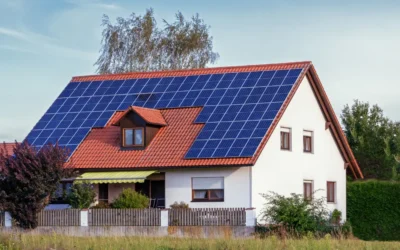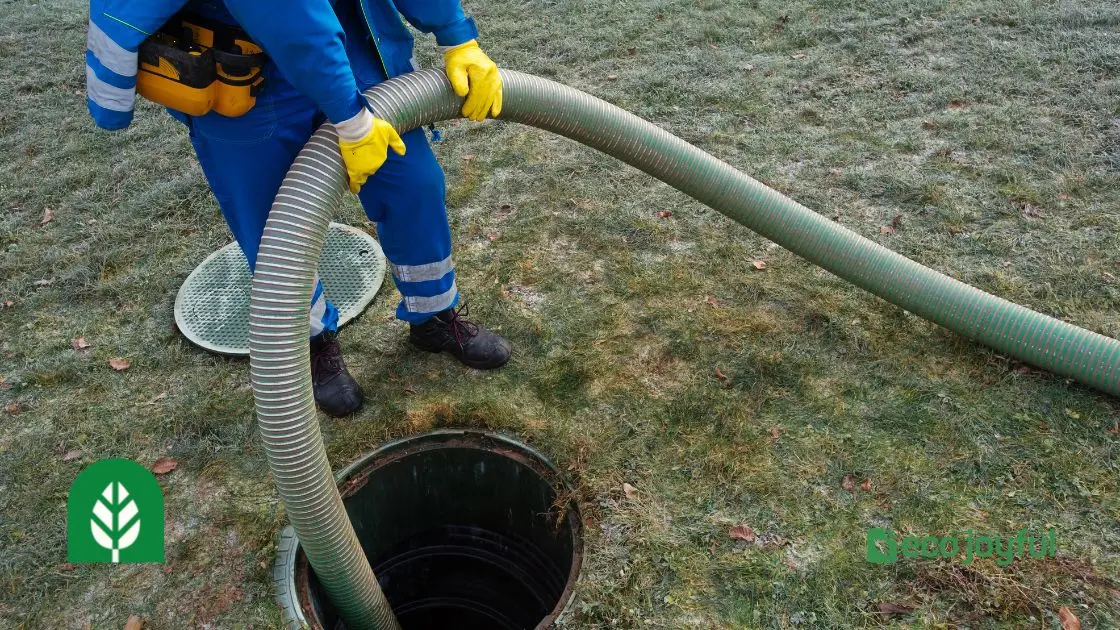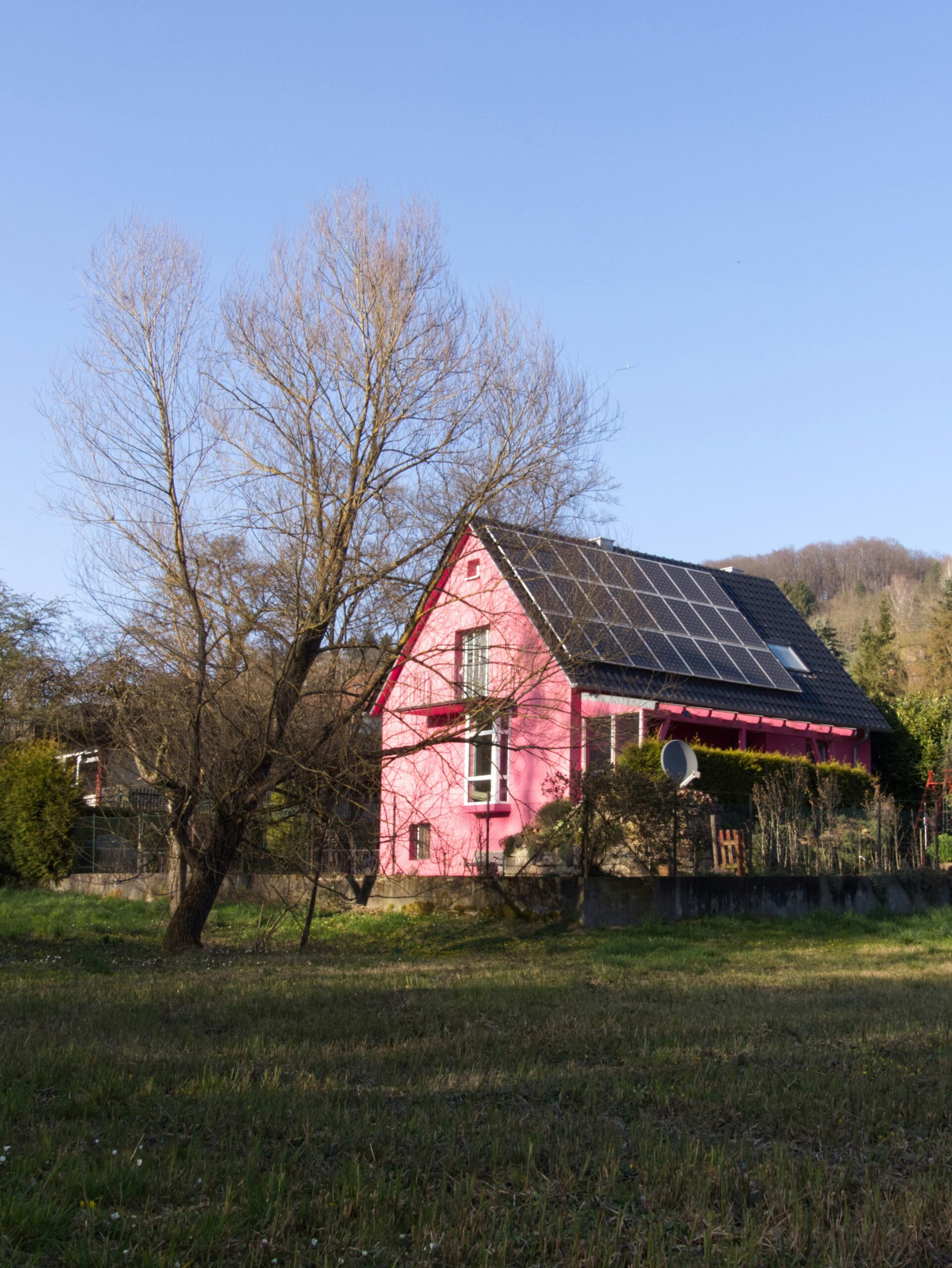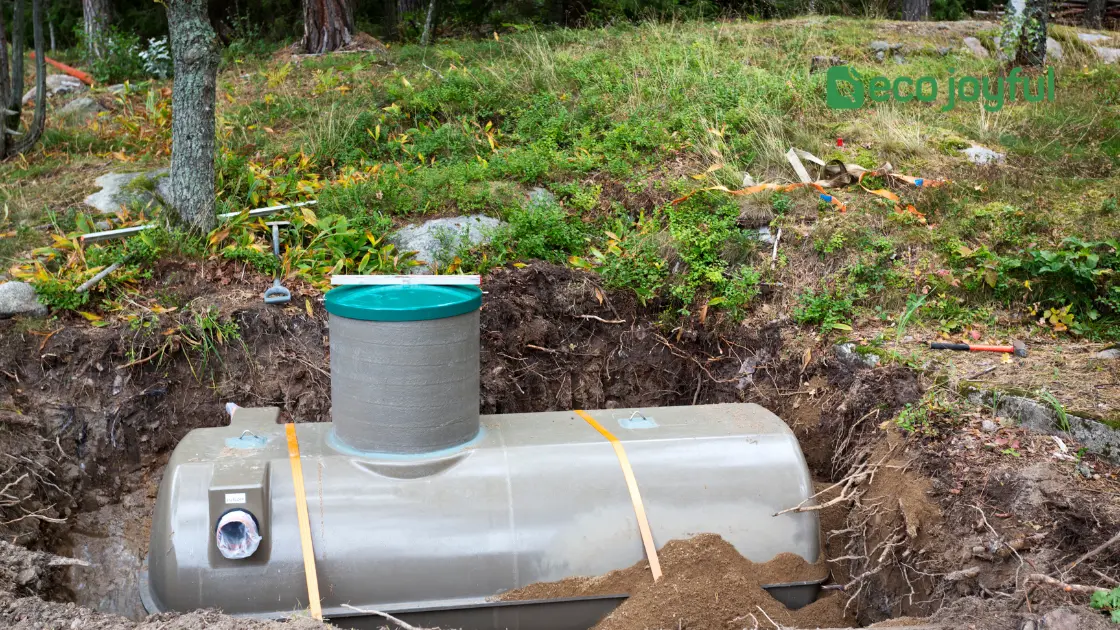An off grid septic system is a self-contained wastewater treatment system that operates independently from public utilities. It provides a sustainable solution for waste disposal in remote or rural areas without access to a centralized sewer system.
Such systems use natural processes to treat and purify wastewater, including the use of anaerobic bacteria in a septic tank and drainfield. The septic tank breaks down solid waste, while the drainfield filters and treats the liquid effluent. Off-grid septic systems require regular maintenance to ensure proper functioning and avoid environmental contamination.
With careful planning and design, they can effectively manage wastewater in off-grid properties, minimizing the impact on the environment while promoting self-sufficiency.
Table of Contents
What Is An Off Grid Septic System?
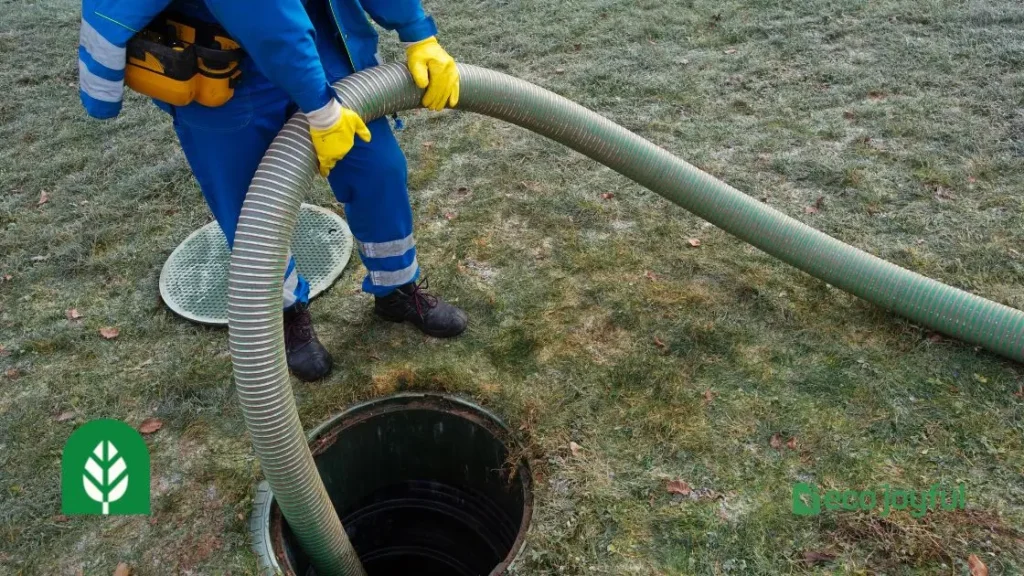
What is an Off Grid Septic System?
An off-grid septic system is a self-contained wastewater treatment system that functions independently of a municipal sewer system. It is designed to treat and dispose of the waste generated by a household or commercial property in a remote or off-grid location. Unlike traditional septic systems that rely on the grid for electricity or water supply, off-grid septic systems are designed to operate with minimal or no external resources.
Components Of An Off Grid Septic System
An off-grid septic system comprises several key components that work together to effectively treat and dispose of wastewater. These components include:
- A septic tank: This is a large, watertight container buried underground that receives and holds the wastewater. It separates solid waste from liquid, allowing the solid matter to settle to the bottom and the liquid to flow into the next stage of treatment.
- A distribution box: The distribution box evenly distributes the liquid effluent from the septic tank to the drain field.
- A drain field: Also known as a leach field or absorption field, the drain field consists of a network of perforated pipes or trenches buried in gravel or soil. It allows the effluent to flow out and be absorbed by the surrounding soil, where further natural treatment occurs.
- A soil treatment area: This area helps in the final stage of wastewater treatment. The soil acts as a natural filter, removing any remaining impurities and pathogens from the effluent before it percolates deeper.
Advantages Of An Off Grid Septic System
An off-grid septic system offers numerous advantages over traditional sewer systems, making it an attractive choice for properties in remote locations. The benefits of an off-grid septic system include:
- Independence: Off-grid septic systems allow property owners to be self-sufficient in managing their wastewater, without relying on municipal utilities.
- Environmental friendliness: These systems utilize natural processes to treat wastewater, reducing the impact on the environment and conserving water.
- Cost-effectiveness: Installing and maintaining an off-grid septic system can be more affordable in the long run compared to connecting to a municipal sewer system.
- Versatility: Off-grid septic systems can be customized to suit the specific needs and conditions of a property, making them adaptable to different locations and terrain.
- Reliability: By operating independently, off-grid septic systems can continue functioning even during power outages or disruptions in municipal services.
Designing An Off Grid Septic System
Designing an off-grid septic system requires careful consideration of the soil conditions, system size, and drainage field placement. These key factors play a crucial role in ensuring the effective and sustainable operation of the septic system. By following a systematic approach to design, off-grid homeowners can create a septic system that is tailored to their specific needs while maintaining environmental responsibility and compliance with regulations.
Assessing Soil Conditions
Before designing an off-grid septic system, it is essential to assess the soil conditions to determine its ability to effectively treat and disperse effluent. Conducting a percolation test is crucial to evaluate the soil’s permeability, which will impact the system’s drainage capabilities. This assessment helps in identifying the type of septic system suitable for the specific soil conditions, be it a conventional gravity-fed system or an alternative, such as a mound or sand filter system.
Calculating The System Size
The next step in designing an off-grid septic system involves calculating the appropriate system size based on the household’s wastewater output and the soil’s infiltration capacity. This calculation considers the number of bedrooms, occupants, and water usage patterns to determine the required tank volume and drain field size. Proper sizing is crucial to ensure efficient treatment and minimal impact on the surrounding environment.
Determining Drainage Field Placement
Once the system size is established, the placement of the drainage field must be carefully determined to optimize wastewater treatment and distribution. Factors such as the distance from the residence, water table elevation, and topography play a critical role in determining the ideal location for the drainage field. Proper placement will contribute to the effective and sustainable operation of the off-grid septic system.
Choosing The Right System
When it comes to choosing the right off grid septic system, it’s important to consider various factors that will ensure efficient waste management and environmental sustainability. With several options available, understanding the types of off grid septic systems and important considerations for system selection is crucial. This article provides an overview of the different septic system types and essential factors to keep in mind when making your decision.
Types Of Off Grid Septic Systems
Off grid septic systems come in different types, each with its unique set of characteristics. Here are a few common types:
| System Type | Description |
|---|---|
| Conventional Septic System | A traditional system that separates liquids and solids, treating waste through natural biological processes before discharging it into the leach field. |
| Aerobic Septic System | An advanced system that uses oxygen and specialized bacteria to break down waste faster, producing cleaner effluent suitable for irrigation. |
| Composting Toilet System | An eco-friendly option that composts human waste into nutrient-rich material, which can be safely used in non-edible garden areas. |
Considerations For System Selection
When selecting the ideal off grid septic system for your needs, it’s crucial to think about the following factors:
- Suitable Soil Type: The type and quality of soil on your property play a significant role in the efficiency of the septic system. Clay soil, for instance, may have poor drainage capacity, making alternative systems like aerobic or composting toilets more suitable.
- Water Table Level: Understanding the depth and fluctuations of the water table is essential. Systems like conventional septic systems may not be viable in areas with high water tables, as it may lead to system failure and potential contamination of groundwater sources.
- Climatic Conditions: Consider the local climate as it affects the overall performance and maintenance requirements of the system. For colder regions, options like aerobic systems that generate heat can prevent freezing issues.
- Waste Output: Analyze the estimated volume of waste your household generates. Different systems have varying capacities, and choosing one that meets your demand ensures long-term functionality.
- Regulatory Compliance: Familiarize yourself with local regulations and building codes governing off grid septic systems. Ensure the system you choose adheres to the necessary standards and obtain any required permits.
By considering these essential factors, you’ll be able to make an informed decision and select the off grid septic system that suits your specific requirements while minimizing any negative impact on the environment.
Installation And Maintenance
An off-grid septic system is a self-contained wastewater treatment system designed to function independently without relying on traditional municipal sewer connections. To ensure the efficient operation and longevity of your off-grid septic system, proper installation and regular maintenance are essential. In this article, we will explore the two main aspects of an off-grid septic system: the options for installation and the importance of proper maintenance practices.
Hiring A Professional Or Diy Installation
When it comes to installing an off-grid septic system, you often have two choices: hiring a professional or opting for a DIY approach. Each options has its own set of advantages and disadvantages, but understanding your capabilities and requirements is crucial in making the right decision.
If you possess the necessary skills and knowledge, DIY installation can save you a significant amount of money. However, keep in mind that installing an off-grid septic system is a complex task that requires expertise in excavation, plumbing, and adhering to specific building codes and regulations.
On the other hand, hiring a professional ensures that the installation is carried out properly and in compliance with all necessary regulations. Professional installers have the expertise to choose the optimal location for your septic system, determine the right size and type of system, and complete the installation safely and efficiently.
Proper Maintenance Practices
While an off-grid septic system is designed to be low-maintenance, regular upkeep is essential for its optimal performance and to prevent any potential issues. Here are some proper maintenance practices to consider:
- Regular Pumping: Schedule regular pumping of solids from your septic tank to prevent excessive buildup and potential blockages.
- Inspection: Conduct routine inspections of your septic system, including the tank, pipes, and drain field, to identify any signs of leakage, damage, or malfunction.
- Proper Waste Disposal: Avoid flushing anything other than toilet paper and human waste down the toilet to prevent clogs and damage to the system.
- Water Conservation: Be mindful of water usage by fixing any leaks, using water-efficient appliances, and practicing water conservation habits.
- Avoid Heavy Loads: Refrain from parking heavy vehicles or placing heavy objects over the septic system components as they can cause damage.
By adhering to these maintenance practices, you can extend the lifespan of your off-grid septic system and ensure its continued functionality even in remote areas.
Common Issues And Troubleshooting
Off-grid septic systems, although efficient, may encounter various issues that require troubleshooting to ensure proper functioning. Understanding the common problems and their solutions can help homeowners maintain the effectiveness of their septic systems. Here are some common issues and troubleshooting methods for off-grid septic systems.
Clogged Drainage Field
A clogged drainage field can lead to wastewater backing up into the house or pooling on the surface. This issue often arises due to the accumulation of solids in the drainage lines, causing a blockage in the soil. To troubleshoot this, consider implementing the following:
- Regular pumping: Schedule routine pumping to remove accumulated solids and prevent clogging.
- Avoid overloading: Be mindful of water usage and avoid overloading the system, which can contribute to drainage field clogging.
- Avoid heavy machinery: Prevent heavy machinery or vehicles from driving over the drainage field as it can compact the soil and disrupt the system’s functionality.
Odor Problems
Odor problems are a common concern with off-grid septic systems and can be a result of inadequate ventilation or drainage issues. To troubleshoot odor problems, consider the following steps:
- Inspect vents: Ensure that the vent pipes are clear of obstructions and adequately venting sewer gases to the exterior.
- Check for leaks: Inspect the system for any leaks or damaged components that may contribute to the escape of foul odors.
- Perform maintenance: Regularly maintain the system by using septic-safe products and additives to control odor-causing bacteria.
Leakage Or Damage
Leakage or damage to the septic system can pose serious environmental and health risks. If you notice any signs of leakage or damage, immediate action is crucial. Troubleshooting methods for addressing leakage or damage include:
- Inspect the tank: Regularly inspect the septic tank for cracks, corrosion, or signs of damage.
- Address vegetation: Prevent tree roots or excessive vegetation from encroaching on the septic system, as they can cause damage to pipes and tanks.
- Seek professional assistance: If leakage or damage is identified, promptly seek the assistance of a professional septic system service provider to assess and address the issue.
Conclusion
When it’s time to consider an off grid septic system, make sure to do your research thoroughly. Understanding the options available can help you make an informed decision. By taking into account the specific needs of your property and the environment, you can choose the right system to ensure efficient waste management.
Don’t rush this important decision.




